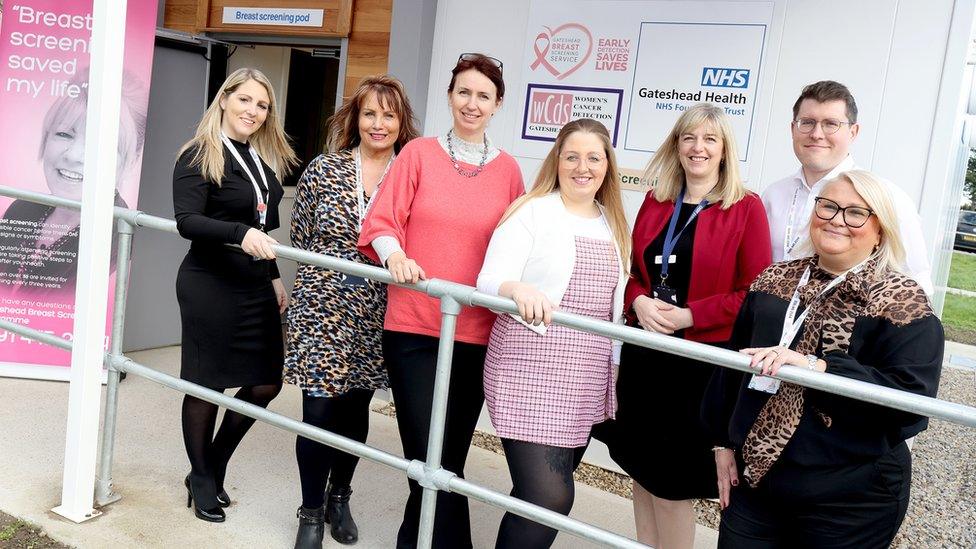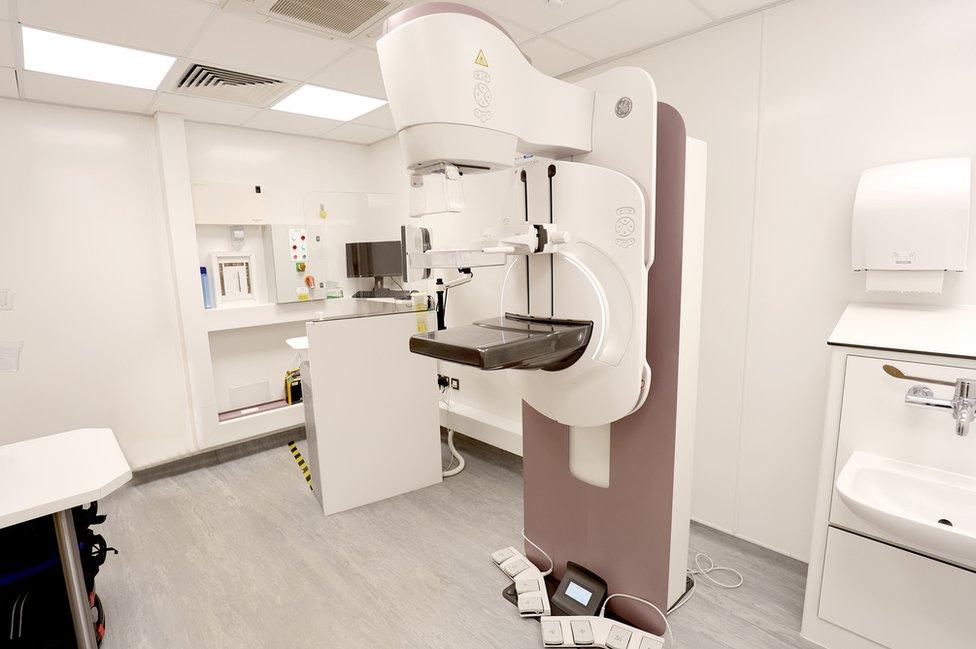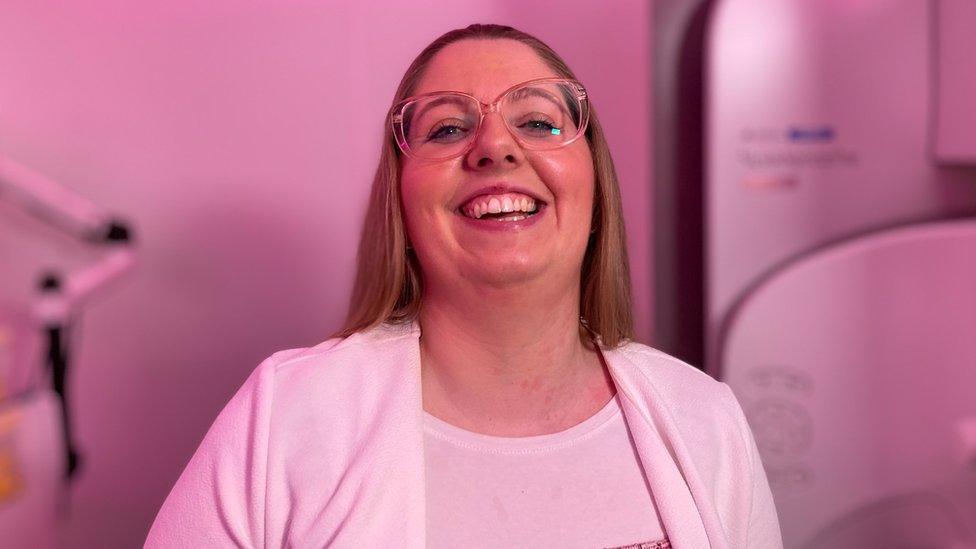New breast cancer screening pod opens in Gateshead
- Published

The new pod has been built just outside the hospital to be more accessible and reduce footfall in the building
A new breast-screening machine said to be the the first of its kind in Europe has opened in Gateshead.
The Pristina Pod at Queen Elizabeth Hospital uses a 3D mammography system to screen breast cancer patients.
Health bosses said it had been designed to be "more comfortable" and "ease anxiety and discomfort" for women as early cancer detection "saves lives".
NHS England funded the machine as part of efforts to tackle a screening backlog from the coronavirus pandemic.

The new scanner is said to be more comfortable
The machine was installed in a new unit outside the hospital by GE Healthcare in February and has been used by its first patients.
Rebecca Smythe, who was 24 when she was diagnosed with breast cancer, urged women to get checked as soon as they have any concerns.
Mrs Smythe, who is now 32, said her husband noticed a lump in her breast but she did not think it was anything urgent so initially thought "I'll just leave it".
But after her husband "begged" her to go to the GP she did so and within two weeks she had been diagnosed with breast cancer.

Rebecca Smythe survived breast cancer and is urging other women to get checked
"If I had left it a matter of weeks it probably would have been spread throughout my body," mother-of-three Mrs Smythe said, adding: "If I hadn't listened to my husband then I probably wouldn't be here today."
She said the new machine was more comfortable than its predecessors which should encourage women to get checked.
"If you are due a mammogram, don't hesitate," Mrs Smythe said.

Analysis - Screening is life or death
By Sharon Barbour, BBC Look North Health Correspondent
The NHS breast-screening programme was seriously disrupted by the Covid-19 pandemic and hospitals like Gateshead's Queen Elizabeth have been working hard to catch up on thousands of missed appointments.
They know the difference early detection can make.
New figures show 91% of women diagnosed, external at an early stage of breast cancer have a survival rate of at least five years.
The five-year survival rate for diagnosis at a late stage, when the cancer has spread, is 39%.
Simply put - screening can be a matter of life or death for some.
Gateshead wanted the Pristina pod in part because of its design. Softer rounded edges make it more comfortable for women and the mood lighting can make it less intimidating for those anxious about being topless.
It might not seem like much but the team at Gateshead say these small improvements can go a long way towards encouraging more women to come forward for their screening appointments.

Lead radiographer for breast imaging Joanne Brand said she was "thrilled" to have the pod, adding: "We are delighted to be the first in Europe to offer this facility and I look forward to seeing what the future holds for breast screening."
She told the BBC a mammogram was an "intimate procedure" which took a couple of minutes but staff aimed to make women as "comfortable as possible".
Ms Brand said: "We understand screening is an embarrassing thing but it is very important women come.
"Cancer is detected far sooner on a mammogram than if you wait and a lump does appear.
"Early detection saves lives."

Follow BBC North East & Cumbria on Twitter, external, Facebook, external and Instagram, external. Send your story ideas to northeastandcumbria@bbc.co.uk, external.